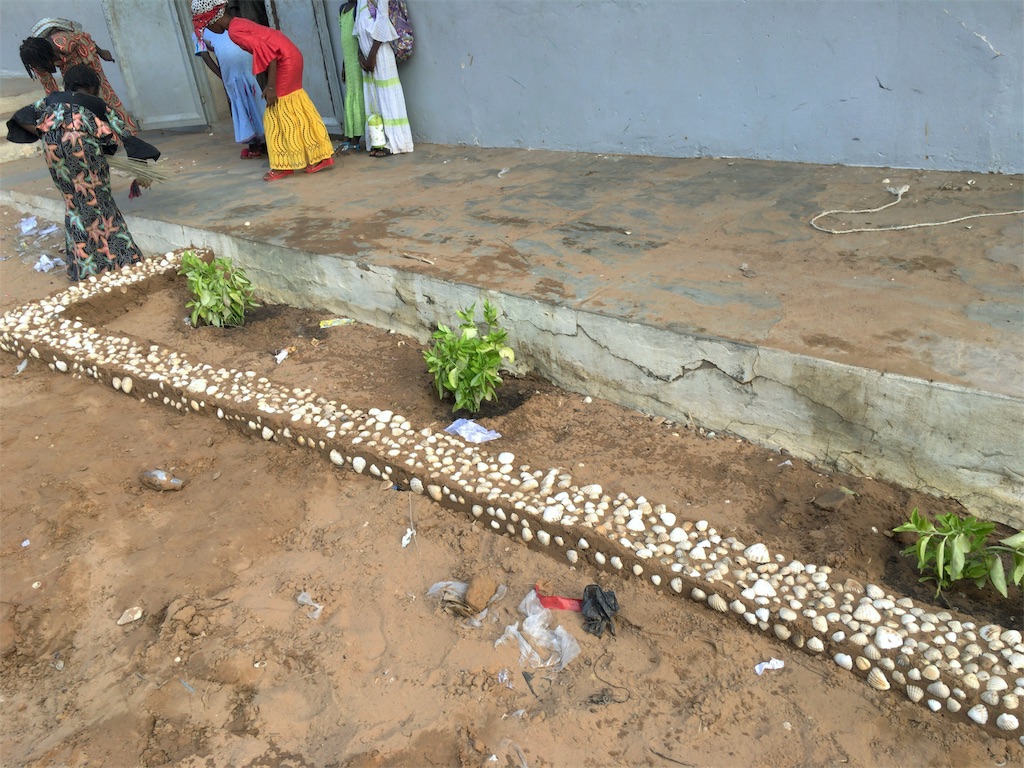Physical punishment still remains in Senegalese schools.
In Japan, these kind of punishment by teachers are immediately in the news nowadays.
Recently I started teaching math and have been to several classes in elementary schoos.
I can understand that how each teacher discipline children by each room's atomosphere when I enter the classroom.
In one class, a teacher hit a student with a rubber belt.
I saw other ways like pulling ears, slapping, hitting head and so on.
One day, I heard a loud whipping sound.
I saw a teacher slapping a student who was facing down on the desk.
Naturally, the child was frightened.
Frankly, it is surprising for me and I would rather not see the moments, but it is a fact of daily life in many classes in Senegal.
Including lighter physical punishment, it is done by teachers in all the classes so far.
In some classes with more than 60 students in a classroom, the students have to wait for a long time. It is very difficult for children to just stop and just wait. Even adults cannot do it.
However, if there is even a little noise, teachers give the punishment to children.
A class in which children are disciplined with excessive physical punishment become extremely noisy when teachers are absent.
This is what happened when I was teaching math and the children became noisy.
One of the kids who wanted to be quiet in the classroom brought a rubber belt that was left in the class and said seriously, "Here, use this to make the noisy kids quiet."
The idea of "Whipping is to quiet" has become one of common senses for children.
I said, "I will NOT use this belt."
I threw the belt away and told the everyone.
"I know you guys can hear and understand. So I will NOT hit you guys with belt."
I don't know how many students understood my words, but the teacher who was listening beside me had a thought, and came to talk to me afterwards.
I convey my thoughts clearly and I hope that they got through as much as possible.


Since more than 90% of the country is Muslim, each class has Arabic lessons several times a week. A handmade flower garden that an Arabic teacher had made by himself.
Shells were added to it.
日本では先生による体罰はすぐニュースになります。
最近私は、算数の授業をし始めて、複数のクラスをまわっています。
担任の先生が教室に入った時の空気感で、先生がどんな指導をしているのかが分かります。
あるクラスではゴムのベルトで子供を打ちました。
耳を引っ張る、ビンタ、頭をはたく、など目にしました。
ある時、ムチを打つ大きな音がしました。
机の上にうつ伏せにして打つのが見えました。
当然、子供はおびえていました。
正直驚くことだし、見たくない光景ですが、セネガルの多くのクラスで行われている事実なのです。
軽い体罰も含めると、私の見た全部のクラスで行われています。
1クラス60人以上のクラスもあり、待ち時間が多い授業で、体を止めて待っていることは子供には非常に難しいことです。大人でも出来ません。
ただ少しでも騒がしくなると、体罰は行われるのです。
過剰な体罰で子供をしつけているクラスは、その担任の先生がいない時、反動でものすごく騒がしくなります。
私が算数の授業をしている時、子供たちが騒がしくなったときのことです。
普通に授業を受けたい子が、クラスに置いてあるベルトを持ってきて、大真面目に
「これで、うるさい子を静かにさせて。」と言ってきました。
「静めるにはムチで打つ」という考えが当たり前になっているのです。
「このベルト、俺は使わない。」
私はその子から受け取ったベルトを床に捨て、クラスのみんなに話しました。
「あなたたちは耳で聞いて分かります。だから、ベルトで打つことはしません。」
片言のこの言葉がどれだけの子供に通じたか分からないけど、横で聞いていた先生には思うことがあったようで、その後私のところに話をしに来てくれました。
私の考えをはっきり伝えて、少しでも伝わればいいと思っています。


国の9割以上がイスラム教徒なので、各クラスではアラビア語の授業が週数回行われています。これはそのアラビア語の先生が自主的に作っていた手作り花壇。
貝殻をそえて。